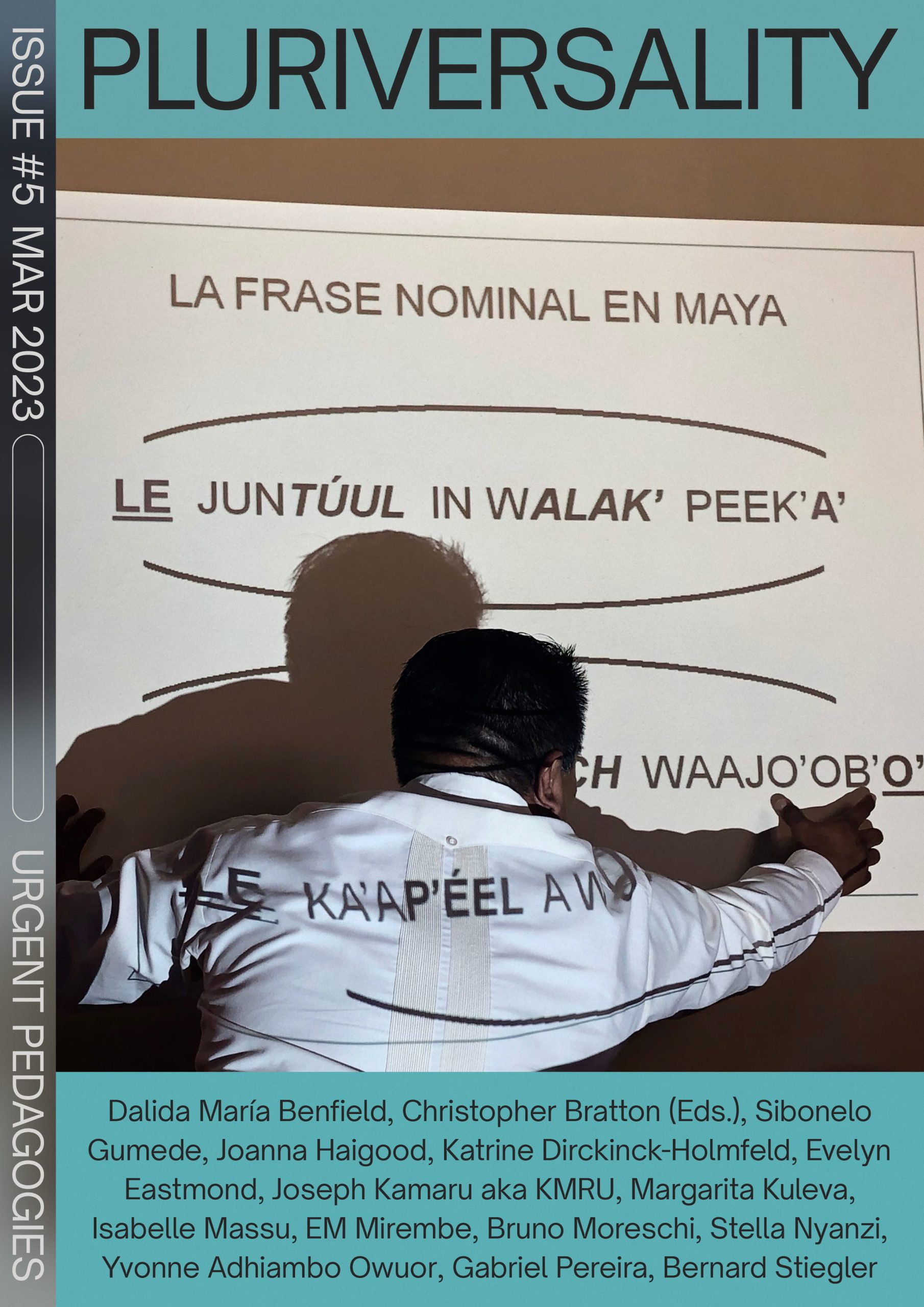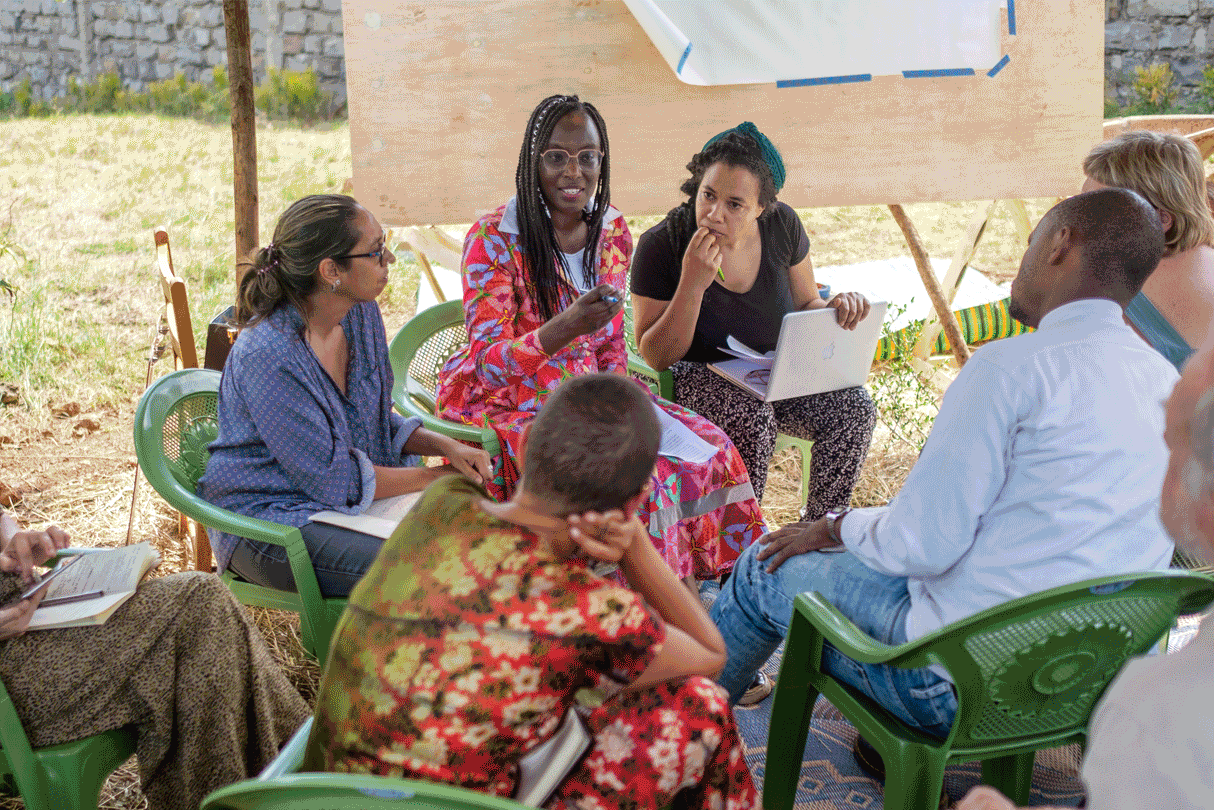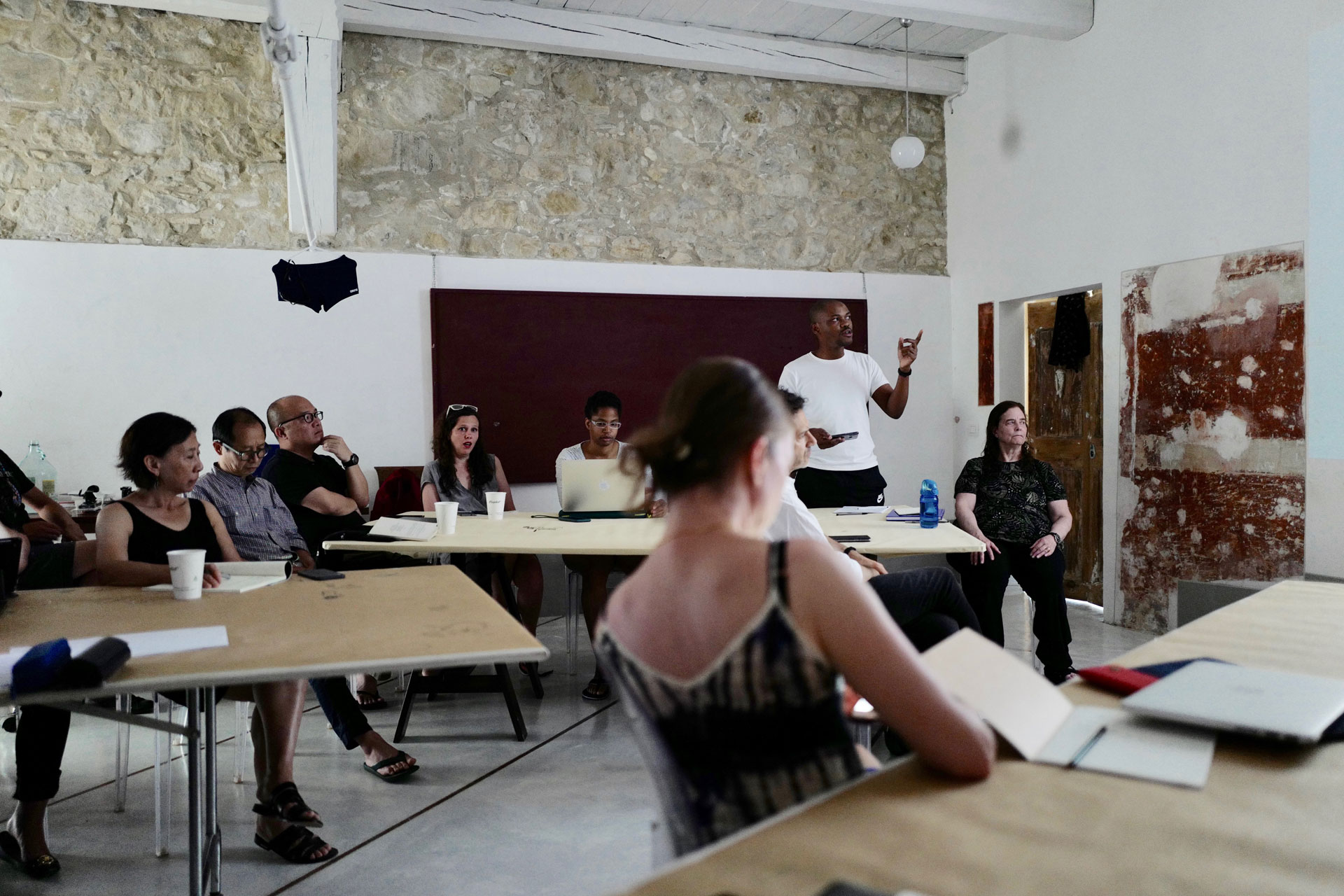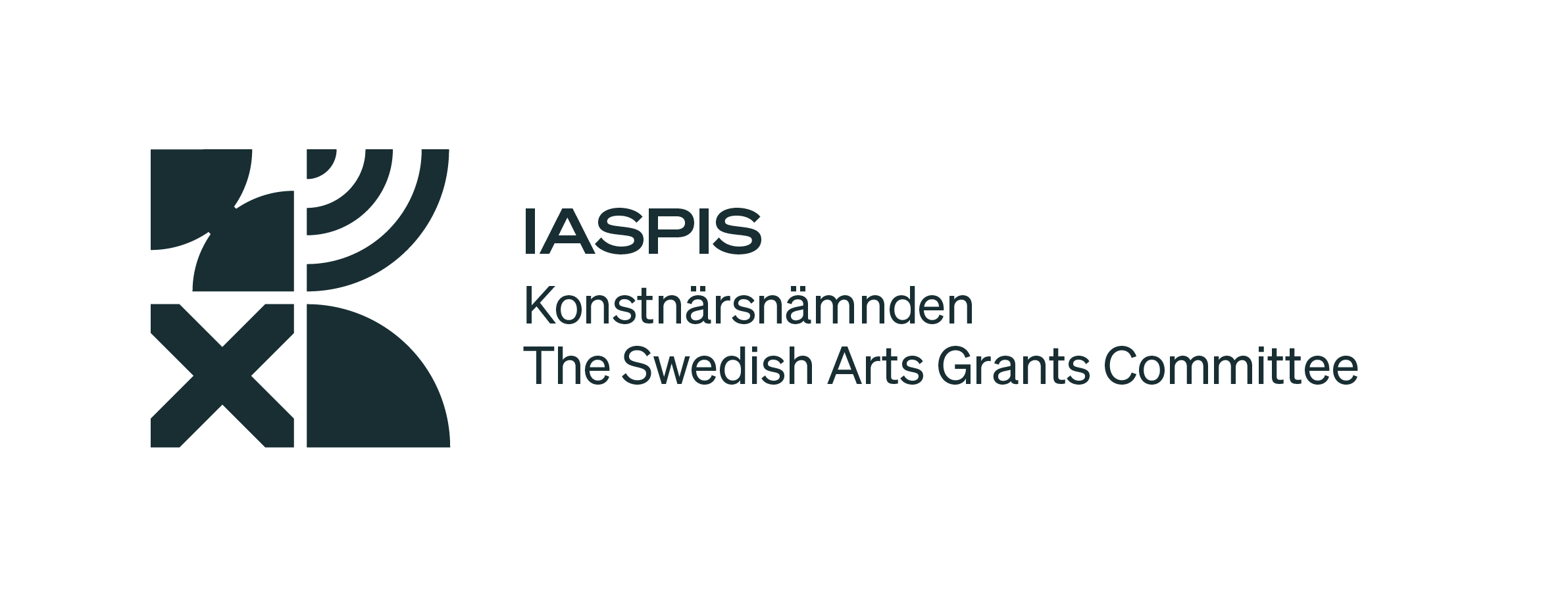Remarks for an opening: January 18, 2020
Yvonne Adhiambo Owuor
CATEGORY
Western modernity fundamentally relies on an idea of universalism that generalizes highly specific values and practices as superior and desirable for everyone, everywhere. The key terms and forms of this universalism – individual, rights, democracy, and the market – appear so commonsensical as to be natural. Yet it is a parochial universalism, one with a specific history that is bound up with the long unfolding of Euro/American colonialism and capitalism.
It is exactly this history that, by way of an introduction, Yvonne Adhiambo Owuor recounts: The 1890 British massacre and razing of Witu, the center of Swahili scholarship and learning in East Africa. Her piece, “Remarks for an Opening,” was written for the De/Archive East Africa research residency organized by CAD+SR with Untethered Magic in Ongata Rongai, Kenya in 2020. The burning of the archives and the murder of its keepers was by then a familiar practice of empire, the essential cultural erasure that made way for racialized ideas of dominance. But as she recalls, other archives survived in the very sea and land, in the navigational practices and mnemonic devices – the poetry – of those who came before and endure still, a living residue of the multiplicity of worlds.
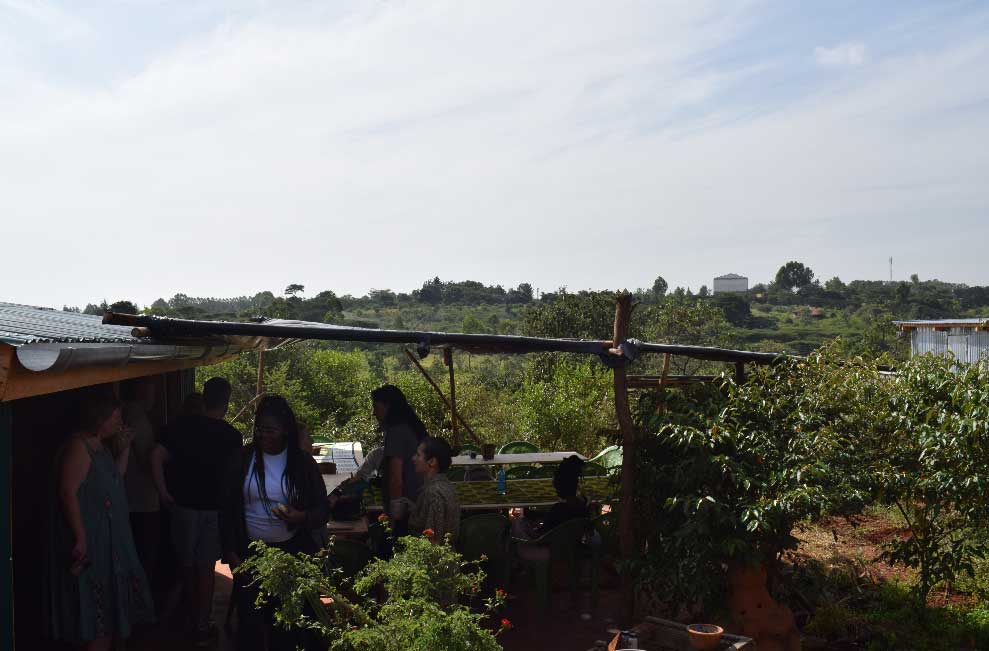
De/Archive East Africa research residency, Ongata Rongai, Kenya, January 2020. Photo by Sylvain Souklaye
Congratulations to the Centre for Arts, Design, and Social Research on your sixth residency for artists, designers and researchers, DE/ARCHIVE EAST AFRICA. It is also good to see some dear old acquaintances I have not met in a while. Hello there? To the rest of you, welcome to the country, the city and its suburbs. And thank you for inviting me to be a fly-on-the-wall, offering an occasional buzz to what will no doubt be a tremendous happening.
I shall, indeed, read you a pre-dinner, bed-time story, but since you accord me the privilege of words for a launch, allow me these introductory remarks. I know that the delectable smell of food takes priority over pontification from a podium. So I shall try to make this a little painless.
October 1890. A British military force under Admiral Freemantle lands at Kipini at the mouth of the Tana River and then proceeds 26 kilometres inland to Witu, a splendid sultanate under the mantle of Fumo Bakari ibn Ahmad whose brother had earlier made a Faustian pact with Prussians for added protection against the British who were furious at Witu for providing sanctuary not only for humans escaping slavery in Zanzibar, but the intelligentsia in distress. It was one of the many centres of scholarship linked to the long history of our East African coast. Anyway, the German partners would eventually cede the territory – which wasn’t theirs to begin with – to the British. The Witu residents had objected. When these marauders entered Witu they proceeded with an egregious act of genocide. The sultanate was levelled to the ground. Particular attention was given to the destruction of records, the archives of Witu that had once been noted as the most significant regarding the long- long history of the East African coast. Not only were they bombarded to nothing, anything that remained was set alight. It would take another three years for the erasure of Witu by the British, united in intent with the Zanzibar sultanate. The loss of the archives. In this tragic story that was told to me by the then curator of the Zanzibar museum, it is this that impacted me the most because of the surge of longing that hit me, a longing to know, to read, to learn, to remember, to understand. Then rage at the sense of loss. Grief too. The destruction was so unnecessary. What probably irritated the British and the Sultan of Zanzibar the most was that the Witu Sultanate and civilization, Swahili to the core, would be an irritant to a narrative that would soon be perpetuated that the East African coastal civilization was solely the work of Arabian and other external influences with no local – you can read that as dark toned impact. That the stories of agencies over the ocean was, again, written with foreign ink, and that the only time a darker-hued African engaged with the waters was as a shore fisherman, or as cargo – slaves on foreign ships. There is nothing left of Witu now; dust and distant memories. On the maps of Kenya it is down as I quote “small market town in Lamu county”. When Mr. Trump threatens Iran with the destruction of its cultural heritage, in the same way that the invading Americans did with Iraq, especially Baghdad, this is nothing new for it is the weapon of a pathological paradigm that has dominated the world and the human spirit for the last 300 years, with its fixation and pretensions of superiority, its willful application of savage violence and expropriation, but most terrifyingly, its inability to conduct an examination of conscience and consciousness. Instead it rewrites history situating itself at the centre, the subject and the protagonist. This is its MO. Having purged a place of its records and murdered those that are tasked with remembering – the scholars, the artists, the prophets – this force can write another, thinner, smaller, stupid story of being horrified over ghosts. In time a generation will come that will speed past Witu, speed past Baghdad, speed past the Kingdom of Kaffa, speed past Kabul because all that is in evidence is dust, wind and stones.
It is such a lovely sounding phrase. Archive, a word that evokes, suggests and contains. It proposes infinite possibilities. It has the look of authority and impact invested upon it. It even looks good on paper. Archive; it is a relatively young word, dated from the early 17th century to refer to a “place where government records are kept”. French derivatives: archives (plural) and Latin origins archiva, or Greek arkheia “government”. So much to be unpacked within this idea. It is The Archive, and perhaps disruptive sense that stimulates this gathering and encounter, right. My new thing about this lovely word is that it is polysemic – it has multiple meanings and applications. It is a promiscuous word – I love promiscuous words. They complicate the human desire for firm and clear dichotomies. For absoluting truthiness.
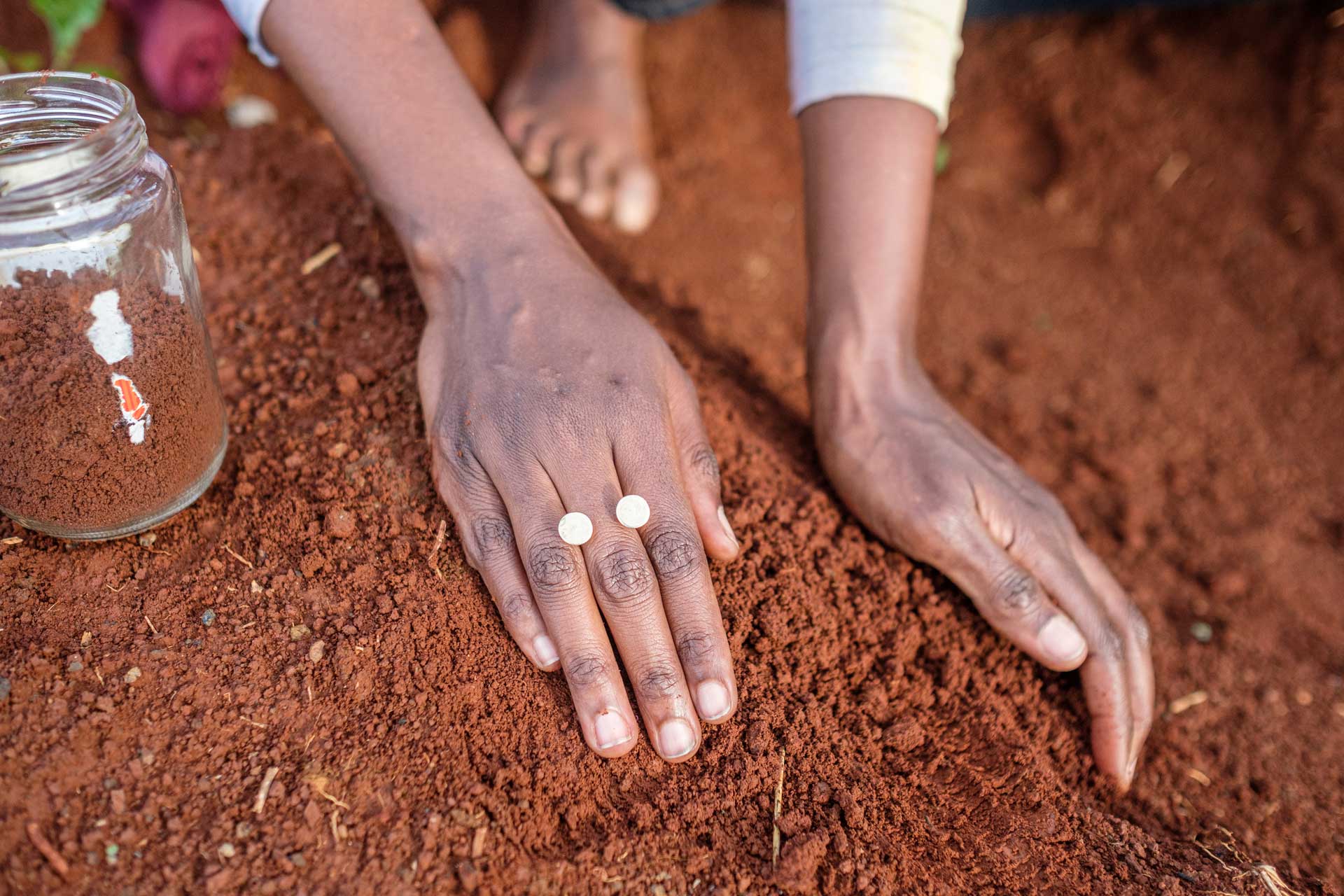
Workshop during De/Archive East Africa research residency, Ongata Rongai, Kenya, January, 2020. Photo by Adam Sings In The Timber
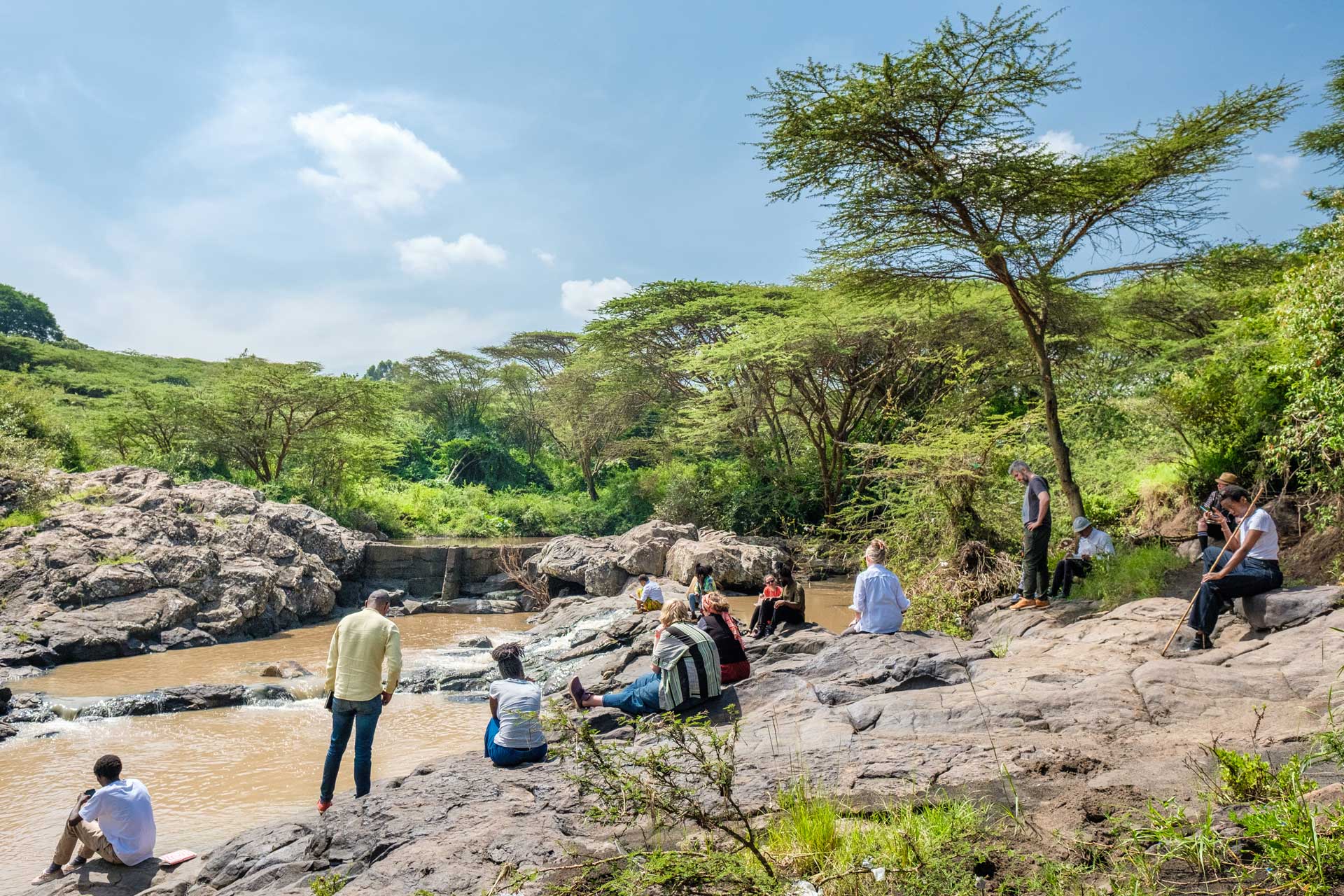
Workshop during De/Archive East Africa research residency, Ongata Rongai, Kenya, January, 2020. Photo by Adam Sings In The Timber
What is the archive (you need to understand it before you dismantle it, I guess)? What is the archive you have indubitably mulled over for yourselves in your various ways? Why is it riven with contestations? Is it historical human record keeping? Memories of being? The structures of such record keeping? What collections propose? Does it shelter time? Are they an Atlas of human doings? Like time capsules? Where, and by whom are these to be accessed, found, sustained, and this, in what is still called the Digital Age? What makes an archive – and now we use adjectives: modern, colonial, or traditional, or non-archival? Who is it for? What is chosen, what is left out, to what effect, to whose advantage? What are the politics, the purposes of erasures, of re-writing, and archiving … differently? (I was being polite; by different, take the example of The Queen of Sheba whose dark-skinned portraiture progressively becomes paler and paler until – just in time with the alleged Age of Reason, she shows up in art looking like Susan of Coventry, complete with golden locks, and you have to look very hard to find her in her original … colours – pun intended?) What does this mean for generations to come? What does the Archive mean for Kenya, for Burundi, for Africa? Where is it located? Is there an Archive – capital A – or are there archives? Why is the Kenyan state’s new national plan, the BBI focused on the Archives and the appointment of a Chief Archivist? In the conversations about encounters with the archives its use, or abuse by whomever, does the idea of restitution, certainly as detailed by Felwine Sarr and Benedict Savoy in the seminal, rumble causing restitution report commissioned by Macron, but paid fully – it was a matter of principle for them – out of their own pockets – The Sarr-Savoy Report on the Restitution of African Cultural Heritage, Toward a New Relational Ethics. I assume you already have copies of this. So what does this mean for you as individuals and as a community? Why has the topic of the archive become a trending theme in this day and age? What are the undercurrents? What is your role, if any? Given all the elements that are lined up in this new epoch, anticipating the re-orientation of the world, what do you imagine of and for the next epoch archive and its access protocols? And you yourselves ask, and I quote, How have artists, writers, thinkers, and activists addressed this tension to rethink the role of archives in the East African context? How might we rethink both knowledge and memory in relation to an official record based on exclusion and silence? What might a radical archive be? You also ask?
Exciting. What it means is that for you researchers – thankfully – you are embarking on a labyrinthine adventure that can lead anywhere, even, hopefully, down rabbit holes. Safari Njema!
My artistic stake in this is derived from the desire of my muses to dig into shadows, to retrieve embodied and other knowledge resting in the interstices of human, and to be more precise, African spaces, including that of memory. I prefer to browse in the debris of that which the official archive discards. In my restless quest to understand the ruins of nations to which I belong, in order to help, and I quote ‘turn ghosts into ancestors that can bless us’. It is where my own muses frolic. So I follow them as I must. And they have led me to unexpected realms of magic and memory and sorrow at inestimable losses; the dau captain guilds and their mnemonics of water, the languages, the archive woven in a grammar of memory, and the seas that also belong to us; to coffee mistresses that mourn the extraction of soul and mystery from the high art of coffee, that the imposed narratives – permitted because of what the archives willfully leave out – that most Africans have forgotten is deeply African – everything. But it has another language. It is not just Ethiopian, it is also Central African – Congolese. It is also a forest spirit. Did you know that? Unlikely.
My first book, Dust, was a book that was developed in the Kenya National Archives; poring over assorted records. But it depended on mostly secret interviews with those burdened by memories that did not conform with the official narratives of being Kenyan, and so they whispered out their embodied experiences, pouring out their hearts. And the writer’s regret was the constraints of her need; that of creative storyteller that of asking this rich and complex memory and using it to shape a story character, and reducing a legacy of suffering into a single descriptive sentence with a dangling participle. Your inter- and trans-disciplinarity is good. So good. Perhaps soon – I intend to do it anyway with the project I am working on now – The Coffee Mistress – perhaps soon, when artists go to do their research in the field they will be accompanied by historians, geographers, technologists, among others.
The Dragonfly Sea, out of which I shall soon read to you enters into our Swahili Seas – I hear some of you call it the Indian Ocean. It is The (capital T) Archive (capital A). I was inspired by the navigational poetry of the waters, the Sat Nav of the ages that to my shock had not been accorded attention. Do you know what it means to meet boat captains who can recite their way from Pemba in Zanzibar to Mocha in Yemen through the most exquisite of lyrics, and then to understand that these are mnemonic maps? Routes embedded in memory? To what extent can a ‘text’ borne in memory give texture, perspectives, meaning, dimensionality and sense to a place? I wondered. Where is the ‘locus of meaning’ in such a case? Can this locus be traced (mapped, narrated, found)? Can such repositories of sea experiences be read for biographical threads of the water body to which they refer? But you, the Africans, know very well that the intimate and imagined geographies through the lives and memories – individual and collective, private and institutional – of those who have had the closest and most extensive relationship with a great imaginary like the sea are mostly missing. I guess because of this, the story turned into a narrative on and of the interstices, the ‘small stories’ (micro-narratives), those seemingly ordinary tales of encounter and experience that get obliterated in the retelling of overarching historical (‘China in Africa’) and geographical (‘Swahili Sea’) phenomena. The Dragonfly Sea is an effort to story the Swahili Seas, our seas, a reclamation of an East African maritime imagination that was informed, and I want to publicly acknowledge him – by the memories and selected sea poetry of Zanzibar-based Haji Gora Haji, mariner and poet in whom the ocean lives in another language. The outcome in this story – a young woman’s coming-of-age – in the advent of the coming age of China.
Again, in this significant and subversive quest, I wish you surprise that transfigures and transforms knowledge.
This text was written uniquely for the CAD+SR De/Archive East Africa residency, January 2020. The text was delivered during the residency. This is its first publication.
Remarks for an opening: January 18, 2020 is part of Urgent Pedagogies Issue#5: Pluraversality
burst into the literary limelight in 2003 when she won the Caine Prize for African Writing. Her writing, both fiction and nonfiction, captivates readers with its representation of African life in resonant and complex ways. She harnesses the lyrical power of storytelling through a poetic language that doesn’t just reflect reality but also sees into the deep dark undercurrents of violence in history and collective life. Whether in a novel like Dust (2014), set against the 2007 post-election violence in Kenya or in a short story like “Weight of Whispers,” which explores the Rwandan genocide, Owuor invites readers to participate in a shared experience of trauma as a private experience and a collective reckoning. Her most recent work of fiction, The Dragonfly Sea (2019), is a coming-of-age story that explores aspects of an East African sea imagination in a time of China’s return to its milieu. Yvonne is also active in the environmental and conservation sector. She was a 2020 CAD+SR Faculty Fellow and is currently an advisor.
Owuor, Yvonne Adhiambo. The Dragonfly Sea. New York and London: Penguin Random House, 2020.
Owuor, Yvonne Adhiambo. Dust. New York and London: Penguin Random House, 2014.
“Yvonne Adhiambo Owuor On What It Means To Be Human,” Origins: The International Writing Program Podcast. https://iwp.uiowa.edu/podcast/yvonne-adhiambo-owuor
“Words for worlds,” Yvonne Owuor, TEDxEuston. https://www.youtube.com/watch?v=T9Oe6U2zoAc
